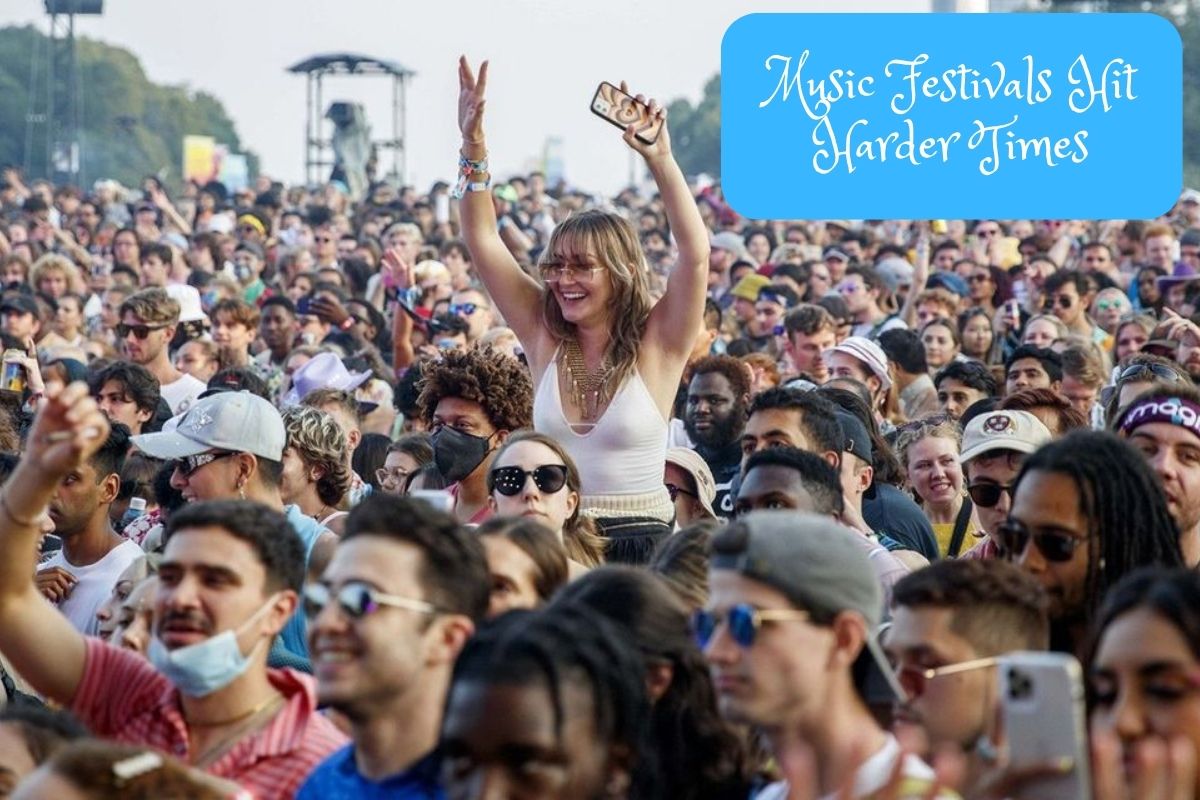It was planned that Travis Scott would make his first public performance since last year’s tragic Astroworld concert at Day N Vegas, a major hip-hop event, on Labor Day weekend.
However, promoter Goldenvoice called off the event in July, claiming problems with logistics, time, and production. In particular, those in the know speculate that poor sales were the result of the event being moved to one of Las Vegas’s busiest weekends due to venue competition.
After a two-year hiatus, the concert industry is gearing up for its busiest year ever. Tickets to more performances than ever are selling for exorbitant prices, as fans flock to see their favourite performers. However, music festivals, a cornerstone of the touring market during the previous decade, now face new difficulties as a result of the industry’s haste to hit the road.
The pent-up demand that sparked a frenzy at the end of 2021, say concert executives, has subsided. The success of early events like Lollapalooza, Life Is Beautiful, and BottleRock provided organisers a skewed picture of the festival business.
With such a long planning period, everyone responded, “Let’s get moving for 2022,” said Lyte’s chief commercial officer Lawrence Peryer. “People’s excitement was palpable as they responded to those first signs.”
Covid-19 variations, inflation, labour shortages, supply concerns, and an overabundance of touring artists made life much more challenging in 2022 than anyone had imagined. Fans are growing pickier about where they spend their money as new worries of an economic slump surface.
Melissa Ormond, chief operating officer of festivals for AEG Presents and Goldenvoice, which manage dozens of festivals including Coachella and Stagecoach, stated, “We had incredibly strong events in 2021.” Oversaturation occurred when “more and more tours felt comfortable hitting the road.”
Smaller and mid-sized bands, as well as their crews, who rely on touring for money, will be impacted especially hard by the pandemic lockdowns. According to Max Frieser, vice president of Infamous, which has helped advertise more than 25 festivals in the last year, there are a lot of musicians on the road at the same time due to postponed tours from 2020, acts preparing new tours, and a variety of new or revived festivals.
Per-event attendance has decreased, he said, even though overall ticket sales have up, because “there’s an oversaturation of events.” Ticket sales are down at this year’s festival. Less people are being asked to buy more tickets, and the industry is reaping the benefits.
Ms. Ormond also noted that audiences are more likely to be fussy because many festivals had similar lineups, with bands that were either on their own tours or are due to go on tour soon. She opined that ticket sales at festivals were lower because festivalgoers had to pay more than they would for an arena performance.
‘Festivals Are a Petri Dish of the Economy on the Whole—Travel, Transport, Food.
Oversaturation is nothing new to the festival sector. Around five years prior to the epidemic, the festival industry began to decline, with the ill-fated Fyre Festival serving as a poster child for the trend.
Mr. Peryer acknowledged that “there was a bit of a culling.” “In the excitement to get back to life after the pandemic, the reasons why may have been forgotten.”
Lightning in a Bottle festival promoter Dede Flemming said last year’s event saw an increase in attendance and enthusiasm at the end of summer. He predicted that the event would sell out after its announcement and subsequent sale.

He said that opinion had shifted by spring. Do LaB promotes a stage at Coachella, and “that’s when I started hearing from other festivals and ticketing company owners that everything going on sale was hurting,” according to Mr. Flemming.
Due to poor ticket sales, many shows had to be postponed or cancelled. Bandsintown, a website that keeps tabs on where artists are performing, reports that the number of gigs announced and subsequently cancelled during the first half of 2022 more than doubled from 2019. According to Fabrice Sergent, managing partner of Bandsintown, cancellations spiked in January due to crews and artists acquiring Covid-19, then in June as festivals began cancelling.
Competition for resources and labour, as well as increasing pricing for everything from petrol and fuel to fencing and staging, have contributed to the high costs of previously held festivals. The cost of putting on an event has increased by 30–40%, according to promoters, agencies, and executives. After inflation hit, many festivals that had been postponed for two years were still using 2020 budgets and ticket prices.
According to Mike Luba, the live-events producer and artist management behind Michigan’s Electric Forest festival, “festivals are a petri dish of the economy as a whole—travel, transport, food.” “The cost of holding events consistently rises.”
After a year in which several festivals barely broke even, organisers are wondering how many people will return and whether to reduce the number of days the event is held.
Ms. Ormond of AEG speculated that some performers would cut back on their schedule by a day or even an entire year in order to return with improved abilities.
The New Orleans festival Buku, which has been going strong for ten years, announced earlier this month that it would not be held in 2023. Festival organisers acknowledged that “times are changing and the current paradigm of Buku needs a break.”
You don’t have to be a rookie to make rookie mistakes, but it certainly doesn’t help. Every festival is a learning experience but here are a few of the most important tips to get you started. #musicfestivals #festivals #music #festylife #festlifehttps://t.co/OTCvYQjtxm pic.twitter.com/J3MKZaIsgN
— Festival Survival (@festsurvival) September 3, 2022
Festival planners have stressed the importance of narrowing the event’s scope in the future. Ms. Ormond argued that “the multigenre events, with rare exceptions, are not working.”
Mr. Flemming, Do Lab’s other co-founder, has observed, “Some consumers are willing to spend extra for creature luxuries.” For the larger performances she has seen since the outbreak, electronic music aficionado Emily Christensen said she has exclusively purchased VIP tickets.
Ms. Ormond, however, claims she has no long-term concerns with festivals.
“Even if we are a little more measured coming into an uncertain period, we believe in the festival market, in the value it gives fans,” she said.
If you’re curious about doing this, visit Digitalnewsexpert.com


Leave a Reply